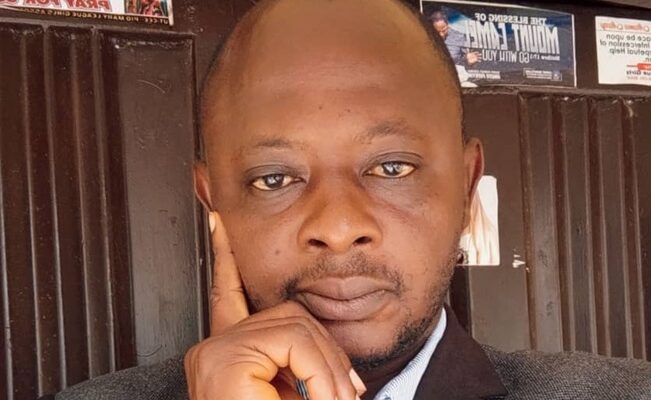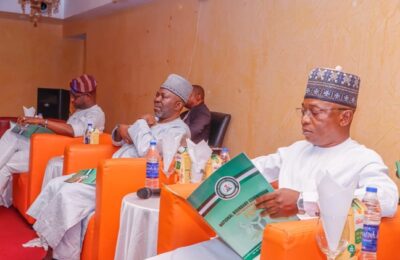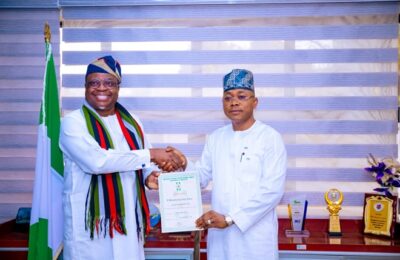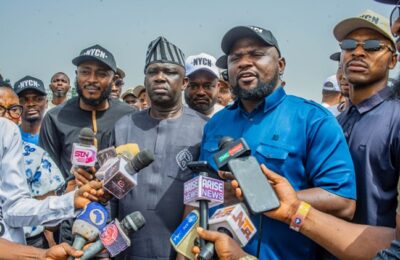The Nigerian polity today resembles a wishbone fractured under the pressure of competing ambitions and parasitic loyalties. What ought to be the skeletal frame of unity, justice, and development has instead degenerated into brittle fragments of ethnic chauvinism, avarice, and institutional decay. The country is suspended in a perpetual limbo — neither wholly awake to the responsibilities of nationhood nor entirely asleep to the consequences of its reckless dalliance with mediocrity.
This nightmare is not a thunderclap in a clear sky. It is the slow-burning consequence of decades of political brigandage, prebendal culture, and elite capture of the national destiny. Elections have become rituals without redemption — hollow contests where votes are auctioned like wares in an open market and the ballot box is reduced to a mere prop in the tragicomedy of democracy. In a nation endowed with vast natural wealth, citizens are impoverished not by scarcity but by the unrestrained gluttony of those who hold the levers of power.
Former President Olusegun Obasanjo once thundered that Nigeria was “dancing on the brink of collapse.” That brink is now the daily theatre of existence — inflation gnaws at household survival, unemployment metastasizes across youth demography, and insecurity stalks the land with the persistence of a bloodhound. From Kaduna to Zamfara, from Plateau to Borno, blood flows in rivulets, while Abuja issues statements as empty as calabashes cracked by heat.
The late Dora Akunyili, in her fiery candour, declared: “Nigeria is not poor; it is poorly managed.” Her verdict was not a metaphor but a mirror. Oil proceeds vanish into private coffers while hospitals rot, schools decay, and roads collapse into death traps. Citizens watch this macabre feast as leaders pull at the national wishbone, each faction tugging for primordial advantage, while the very bone itself disintegrates into the dust of betrayal.
The tragedy is compounded by the complicity of the masses. Hunger makes cowards of multitudes; poverty erodes the moral spine. Votes are traded for morsels of rice, cups of salt, or ephemeral naira notes that dissolve before dawn. Nobel laureate Wole Soyinka’s admonition resounds with prophetic weight: “The man dies in all who keep silent in the face of tyranny.” Yet silence, dulled by decades of dashed hopes, has become the lingua franca of survival. The murmur of discontent drifts from Lagos traffic jams to Benue farmlands, but it rarely coagulates into the thunderous roar of collective resistance.
Still, broken bones can calcify anew. Rwanda rose from genocide; Germany from ashes; South Korea from poverty’s pit. Nigeria, too, can re-engineer her destiny — if integrity dethrones impunity, if courage supplants cowardice, if the governed reclaim their sovereignty from the jaws of rapacious power brokers. Democracy must cease being a game of sharing bones and must become the architecture of flesh — of real infrastructure, of authentic justice, of equitable prosperity.
The way out is not hidden; it is discipline in leadership, vigilance in citizenship, and justice as the soul of governance. Nigeria must enthrone merit above mediocrity, law above lawlessness, and nation above tribe. The wishbone of this country will only heal when sacrifice outweighs selfishness and when power is seen not as loot but as a sacred trust.
Until then, the nation lingers in the twilight of dream and nightmare — a giant adrift, too heavy for its brittle wishbones to sustain, too disjointed to march into promise, yet too restless to sink without struggle.
– Inah Boniface Ocholi writes from Ayah – Igalamela/Odolu LGA, Kogi state.
08152094428 (SMS Only)




